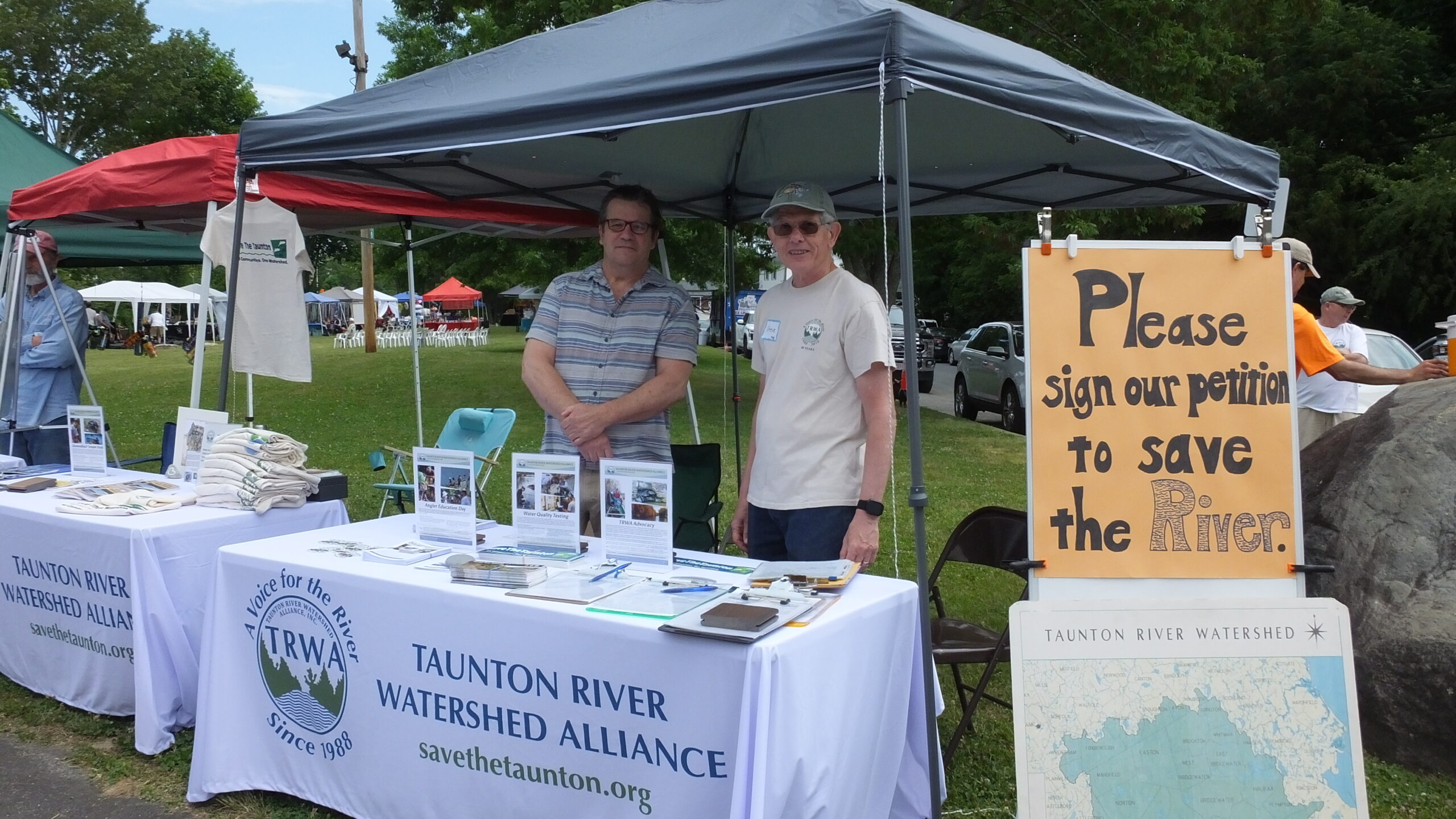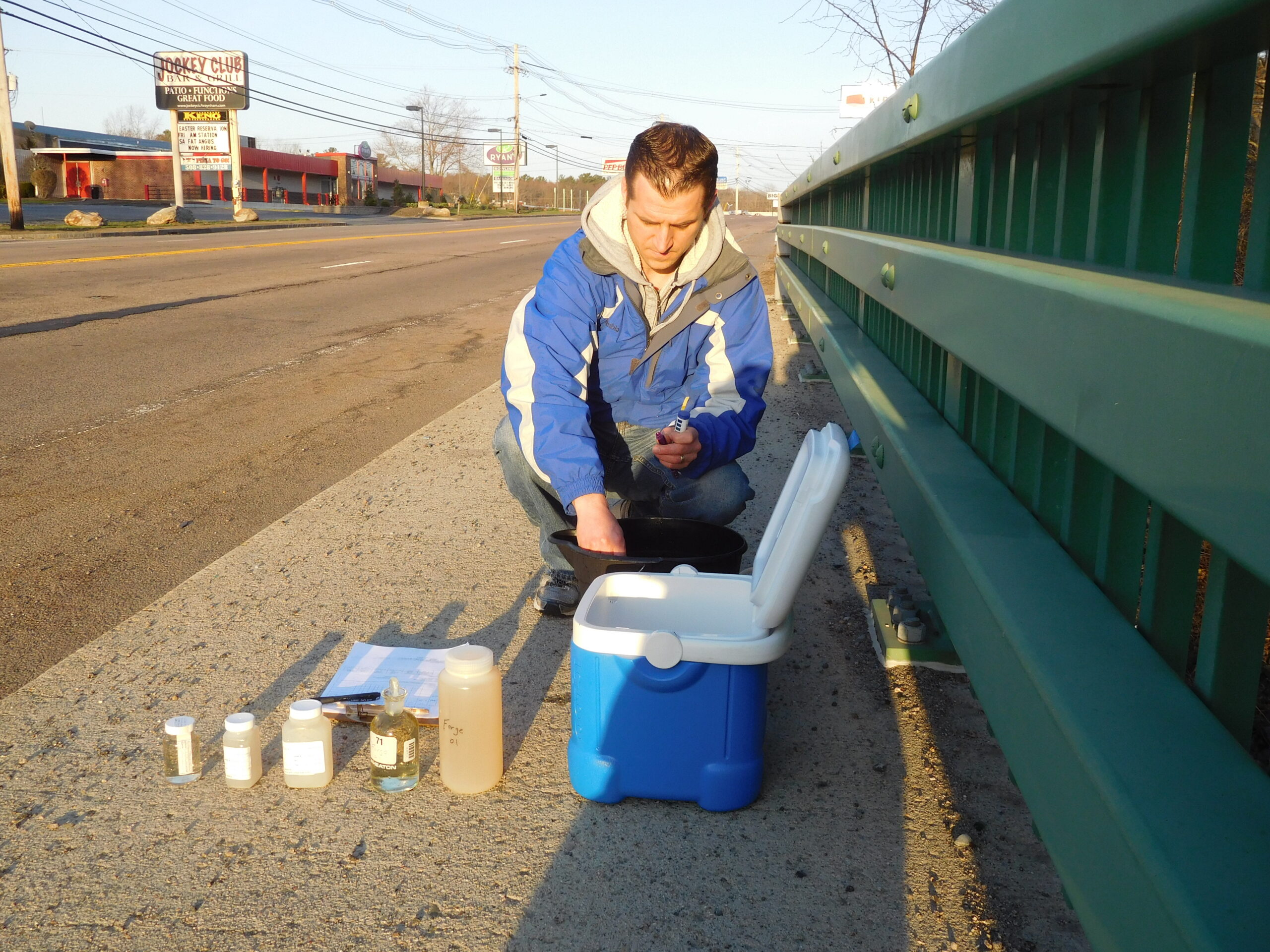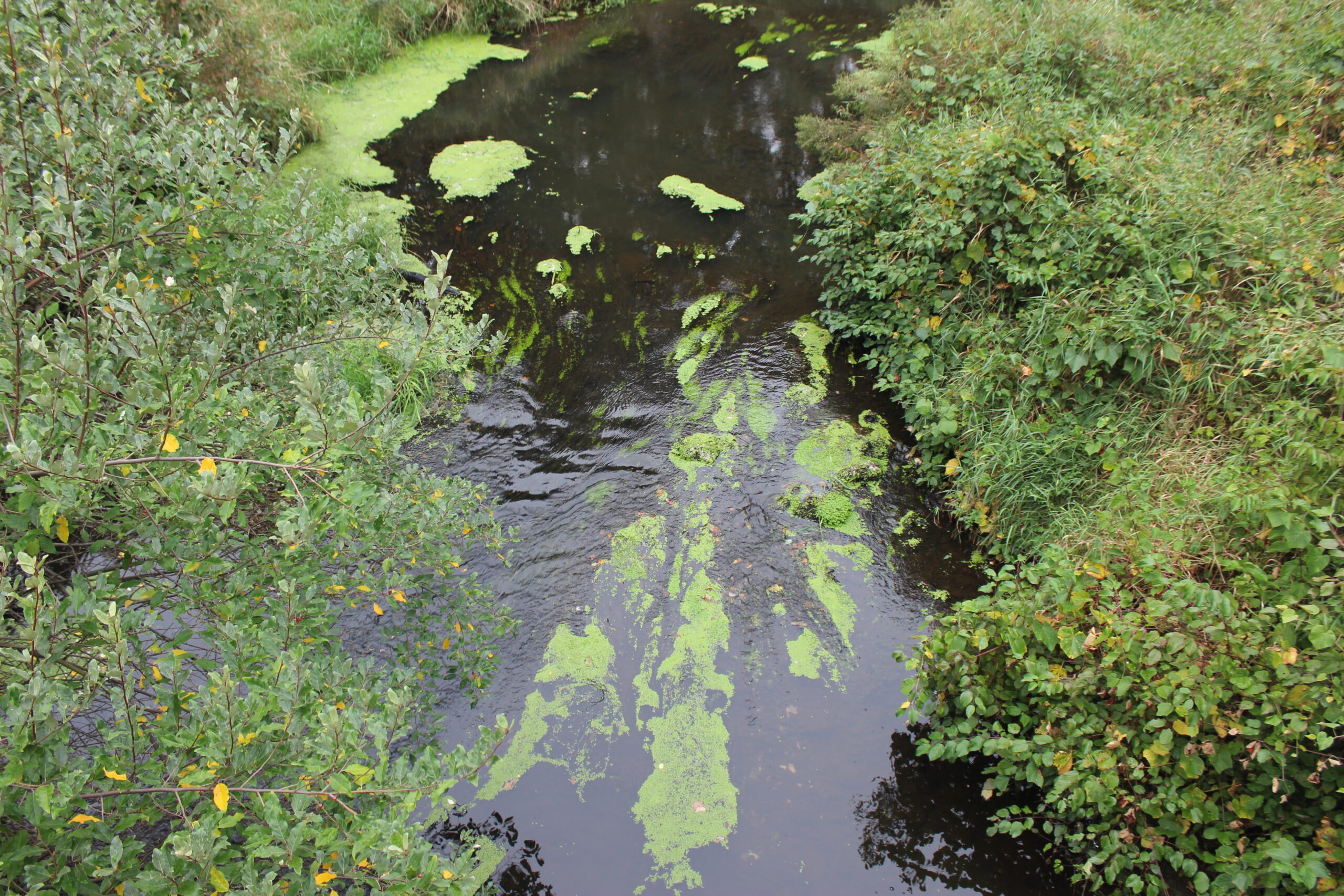Thank you to all who signed TRWA’s petition at the Middleboro Herring Run Festival on Saturday, April 9th or Sunday, April 10th . There will be another opportunity to sign at the Taunton River Festival on Sunday June 12th or you can call our office and stop by to sign. Our petition asks EPA and MassDEP to reissue the last two Clean Water Act (CWA) wastewater treatment plant (WWTP) permits in the Taunton River watershed. These plants need modernizing to remove nitrogen. The juvenile Herring and Alewife need a healthy algae bloom free estuary and Mount Hope Bay to rest, grow and acclimate to seawater before continuing their journey to the ocean. The five upriver WWTPs (Middleboro, Mansfield/Norton/Foxboro Regional Plant, Brockton, Bridgewater and Taunton) have completed upgrades which remove algae bloom causing nitrogen.
The Petition is to Michael S. Regan, EPA Administrator and Martin Suuberg, MassDEP Commissioner, from the Taunton River Watershed Alliance (TRWA) urging reissuance of the long overdue Somerset and Fall River CWA permits with Effluent Limitations Needed to Protect Water Quality.
The petition requests that EPA and MassDEP issue public notices and commence the process to reissue the last two long overdue Clean Water Act (CWA) permits, Somerset (13 years and 6 months overdue) and Fall River (16 years and 4 months overdue). These obsolete treatment plants cause and contribute to algae pollution, as well as dissolved oxygen and nutrient Massachusetts water quality criteria violations in the Taunton River estuary and Mount Hope Bay. The MassDEP continuous monitoring buoys in Mount Hope Bay document algae blooms and dissolved oxygen criteria violations each summer.
The Taunton River was designated a Wild and Scenic River in 2009. The Taunton River estuary and Mount Hope Bay are part of the bi-state (MA and RI) Narragansett Bay, designated an estuary of National Significance in 1985. Because of its low gradient, lack of main stem dams and over 5,000 acres of Alewife and Herring spawning area, the Taunton River estuary and watershed supports a large diadromous fish nursery essential to the offshore commercial fishing industry.
From 2013 to 2015 the EPA and MassDEP put on public notice, and subsequently issued, five of the seven major Clean Water Act (CWA) wastewater discharge permits in the Taunton River watershed. These permits required upgrading of obsolete treatment plants and addition of nitrogen and phosphorus removal to the extent needed to meet water quality standards. In 2016 the effort was stopped before the last two permits in the watershed for Somerset and Fall River were put on notice.
Now is the time to move forward with these permits to improve this critical resource, to make it more resilient to climate change and to promote fairness to the users of the 5 previously upgraded plants. These users will not see the full environmental benefit of their environmental investment in the estuary and river until these last two plants are upgraded. An additional benefit to starting the plant upgrades now is to access any available Build Back Better funding to supplement the State Revolving Fund (SRF) loan program, which helped fund the previous five permits.
The petition may be signed at our office at Sweets Knoll State Park, Tuesday/Wednesday 9a – 4p or Thursday 10a – 4p, please call ahead (508) 828-1101. We will also have copies available to sign at the TRWA Taunton River Festival on Sunday, June 12th from 11:00 AM to 4:00 PM at Weir Riverfront Park in Taunton.
Please contact our office at director@savethetaunton.org if you have any questions.



